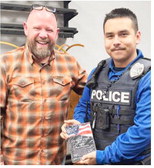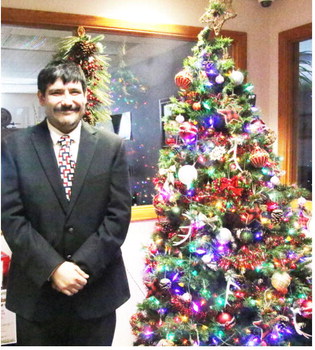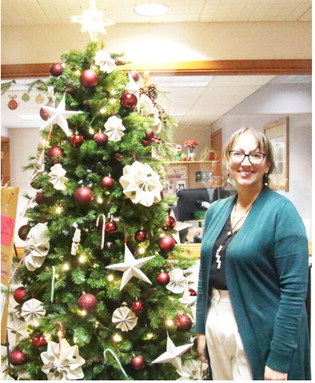MSU Undergraduate’s Research Aims To Help Families Of Children With Developmental Delays And Disabilities
Montana State University student Rachel Kepl has been interested in working with children with disabilities since she was in high school near Seattle, when she volunteered to work as a peer coach with two classmates who had been diagnosed with autism and one who had been diagnosed with Down Syndrome. She later completed an internship in Seattle at a clinic that provided speech, occupational, physical and behavioral therapy for children with neurodevelopmental delays.
“That was really how I knew I loved working with preschoolers,” Kepl said. “I love working with kids who have autism and other disabilities. They’re so wonderful.”
Now, a research project Kepl is conducting about early intervention services for children with delays and disabilities is helping her gain knowledge that she believes will help children and families and also strengthen her future career.
Kepl, a senior majoring in early childhood education and child services with a focus on child development and a minor in psychology, is conducting a study titled “Families’ Experiences of Transitions for their Children with Delays and Disabilities” under the guidance of Kalli Decker, faculty member in the College of Education, Health and Human Development’s Department of Health and Human Development.
As part of the project, Kepl is examining the experiences of children and families as they transition from one set of early intervention services that are provided for children with disabilities to another set.
From birth to preschool age, children involved in early intervention services may go through many transitions, Kepl said.
One category of early intervention services, called Part C of the Individuals with Disabilities Education Act, or IDEA, is provided to children up to age 3. Once children turn 3, they may transition out of those services and into IDEA Part B services, which cover ages 3 to 21. Kepl said research related to these transitions in Montana has thus far been limited.
“It’s extremely important to know how families should be supported for services,” Kepl said. “Helping children transition can be a stressful process for parents, and we want to know how childcare providers and service providers, such as family support specialists and therapists, can best support children and their families.”
Kepl is investigating when and why families transition between services, as well as changes in children’s development or families’ needs over time. Her research is also examining how services change or do not change to meet those needs and families’ experiences with transitions between services.
For her project, she is using data from interviews with 28 families collected in 2017 for a previous project in Decker’s lab. The analysis involves Kepl and Decker reading hundreds of pages of interview responses, coding the data and then looking for common themes.
Kepl hopes to present her findings at the National Conference on Undergraduate Research, which will be held at MSU in March. She and Decker also hope to publish the results in an academic journal. Kepl’s research is supported by funding from Montana INBRE.
Decker said Kepl is an asset to her research team.
“She has brought great insight about how to best support families through the many types of transitions they may experience during the most critical years of their children’s development,” Decker said. “A strength of Rachel’s project is that it focuses on all types of transitions families may experience – whether those are formal, informal or based on changing needs or priorities over time.”
Decker added that the knowledge gained as part of the research “will help us better understand how professionals in Montana are supporting families of children with exceptionalities during all types of transition, and how that support can continue to improve over time.”
After Kepl’s freshman year at MSU, she earned a registered behavior technician certificate, which enables her to implement behavior plans one-on-one with children. Then, during her sophomore year, Kepl took a class with Decker focused on child development from birth to age 3. She soon signed on to become a research assistant in Decker’s lab.
Kepl anticipates that the knowledge she gains through the research project will benefit her clients as she works in the field. After graduating from MSU in December 2020, Kepl plans to pursue a master’s degree program that will enable her to become a board-certified behavioral analyst. The certification will allow her to write behavior intervention plans for children with disabilities.
“Every family has a different experience and is different in terms of what they need,” Kepl said. “In the future, when I help families and children, it will be important for me to understand that every single child and family will be different. Specialists need to be flexible in understanding these families and how we can support them.”
Undergraduate research and creative activity in all corners of the MSU campus will be highlighted throughout the 2019-2020 academic year as the university marks its Year of Undergraduate Research, or YOUR. Monthly events showcase outstanding research by undergraduate students and highlight research opportunities for students in all disciplines. YOUR culminates with NCUR 2020, the National Conference on Undergraduate Research, which will bring more than 4,000 undergraduate researchers to Bozeman to celebrate research, scholarship and creative achievement. More information is available at montana.edu/your/.


